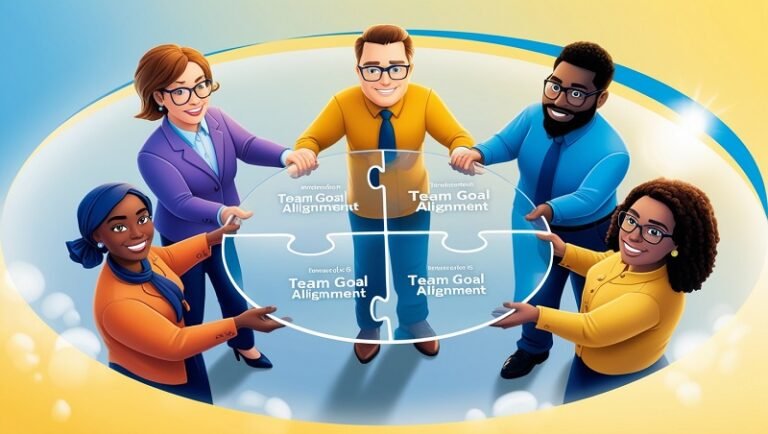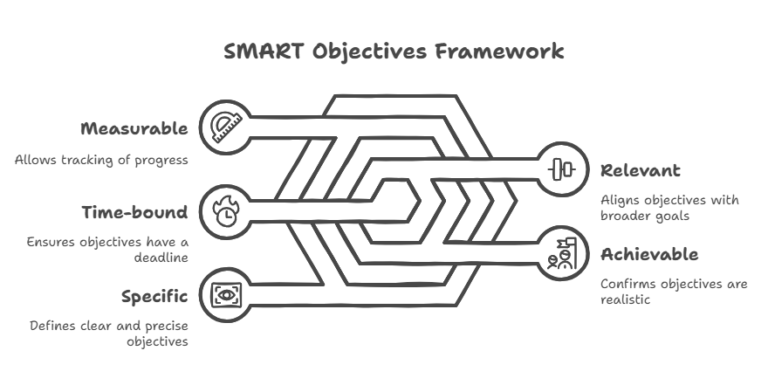In this blog post we are going to take a look at the Ted Talk John Doerr gave in April 2018. In this Ted Talk John talked about how OKRs changed his life. Check out this amazing Ted Talk. Below you find the contents of the video, so you can read it again afterwards.
Introduction:
In today’s rapidly changing world, many leaders and institutions are failing to achieve their intended objectives. This failure often stems from choosing the wrong goals or lacking a clear sense of purpose. To address this issue, John Doerr introduces the concept of Objectives and Key Results (OKRs), a goal-setting system that has been proven effective for organizations, teams, and individuals alike.
The Origins of OKRs:
OKRs were developed by Andy Grove, the former CEO of Intel, who is widely regarded as one of the greatest managers of his time. Grove emphasized the importance of execution over knowledge, leading to the creation of the OKR system. The fundamental principle behind OKRs is simple: set clear objectives (what you want to accomplish) and define key results (how you’ll measure progress towards those objectives).
The Importance of “Why”:
One of the critical aspects of setting effective goals is understanding and communicating the “why” behind them. Transformational teams combine their ambitions with passion and purpose, developing a clear and compelling sense of why they’re pursuing their objectives. This understanding of purpose helps to inspire and motivate teams to achieve extraordinary results.
Case Study: Nuna and the Power of Purpose:
Jini Kim, the founder of healthcare data company Nuna, exemplifies the importance of having a strong “why” behind organizational goals. Despite being a small startup, Nuna took on the challenge of building the first-ever cloud database for Medicaid. Kim’s personal experience with Medicaid, which had helped her family during her brother’s health crisis, fueled her passion and drive to succeed in this ambitious project.
Setting Effective Objectives:
Good objectives should be:
- Significant
- Concrete
- Action-oriented
- Inspiring
Bono, the lead singer of U2, has successfully used OKRs in his global fight against poverty and disease through his ONE organization. Their objectives, such as debt relief for poor countries and universal access to anti-HIV drugs, demonstrate how well-crafted goals can drive meaningful change.
Defining Key Results:
Key results are the measurable outcomes that indicate progress towards objectives. Effective key results should be:
- Specific and time-bound
- Aggressive yet realistic
- Measurable and verifiable
The Google Experience:
Google adopted OKRs in its early days and has continued to use them quarterly ever since. The company’s approach to OKRs emphasizes transparency and collective commitment to stretch goals, rather than using them for performance evaluations or bonuses.
A notable example is Sundar Pichai’s three-year objective to build the best browser, which eventually led to the success of Google Chrome. This case illustrates the importance of choosing the right metrics and persistently working towards long-term goals.
Implementing OKRs in Various Contexts:
OKRs can be applied beyond the business world to personal life, education, and even government. By focusing on what truly matters and holding ourselves and our institutions accountable, we can drive meaningful change across various sectors of society.
Conclusion:
OKRs provide a powerful framework for setting and achieving ambitious goals. By combining a clear sense of purpose with well-defined objectives and measurable key results, individuals and organizations can align their efforts and make significant progress towards their most important aspirations. As we face global challenges and seek to improve our institutions, the widespread adoption of OKRs could play a crucial role in getting us back on the right track and measuring what truly matters.



